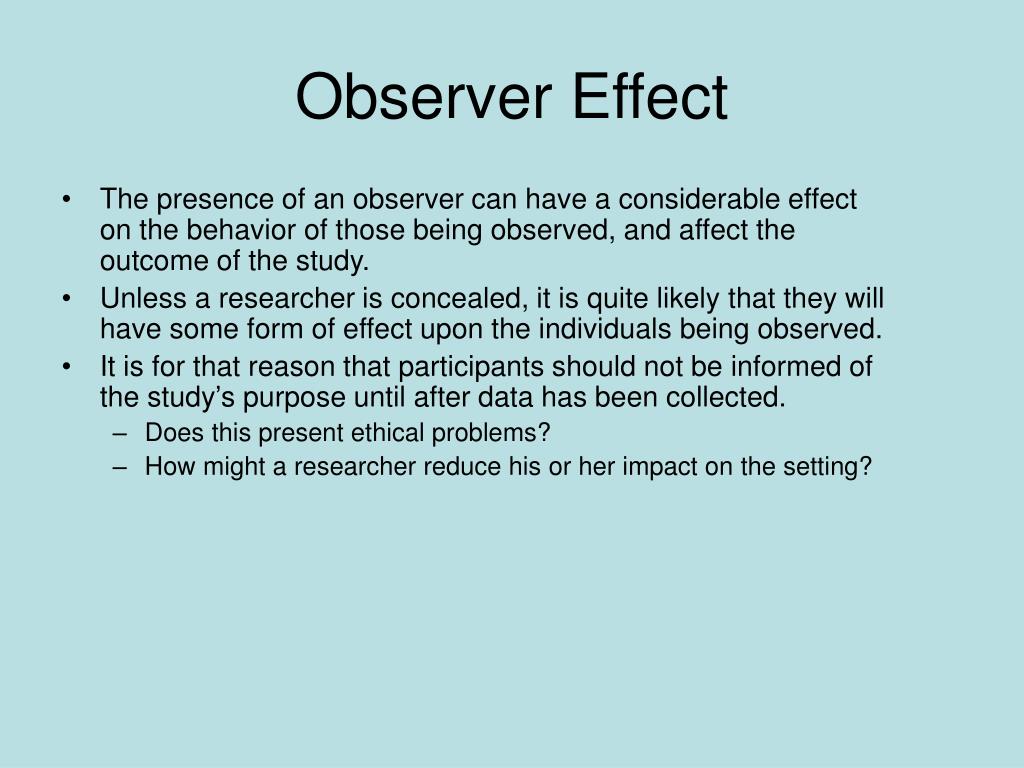


Any difference in outcomes can then be linked to the intervention. The researchers then study what happens to people in each group. One group receives the intervention (such as a new drug) while the control group receives nothing or an inactive placebo.
Observation vs experiment trial#
Randomized controlled trial (RCT): Eligible people are randomly assigned to one of two or more groups. Experimental studies are usually randomized, meaning the subjects are grouped by chance. Experimental studiesĮxperimental studies are ones where researchers introduce an intervention and study the effects. Researchers compare what happens to members of the cohort that have been exposed to a particular variable to what happens to the other members who have not been exposed.Ĭase control study: Here researchers identify people with an existing health problem (“cases”) and a similar group without the problem (“controls”) and then compare them with respect to an exposure or exposures. For instance, a birth cohort includes all people born within a given time frame. Cohort studies and case control studies are two types of observational studies.Ĭohort study: For research purposes, a cohort is any group of people who are linked in some way. Observational studies are ones where researchers observe the effect of a risk factor, diagnostic test, treatment or other intervention without trying to change who is or isn’t exposed to it. The latter three are research studies that fall into one of two main categories: observational studies or experimental studies. But to understand the quality of the findings, it’s important to know a bit about study design.Īccording to the widely-accepted hierarchy of evidence, the most reliable evidence comes from systematic reviews, followed by evidence from randomized controlled trials, cohort studies and then case control studies. Presenter 2: We have formed a hypothesis and then we have tested it, looking at the difference between the meaning of the word "hypothesis" and the word "prediction".When people read about a research study, they may not pay attention to how the study was designed. Presenter 1: So, we have seen an experiment looking at how long a candle burns under different beakers. Presenter 2: The bigger the measuring beaker, the more air and the longer the candle burnt. Our graph shows us the pattern in our results. Presenter 1: As the volume of air increases, then the time the candle takes to go out also increases. Presenter 2: So, if my hypothesis is correct, then my prediction is that candles in larger measuring beakers will burn for longer. Presenter 1: Here, my hypothesis is that the more air and oxygen candles have, the longer they stay alight. Student 1: I reckon, because there's more oxygen, it'll last longer. Presenter 2: So you use your hypothesis to make a prediction. Presenter 1: A prediction is a statement of what we think will happen if the hypothesis is correct. Presenter 2: A hypothesis is an idea about how something works that can be tested using experiments. It's important to know the difference between them. Presenter 1: We are going to look at the two words "prediction" and "hypothesis".


 0 kommentar(er)
0 kommentar(er)
